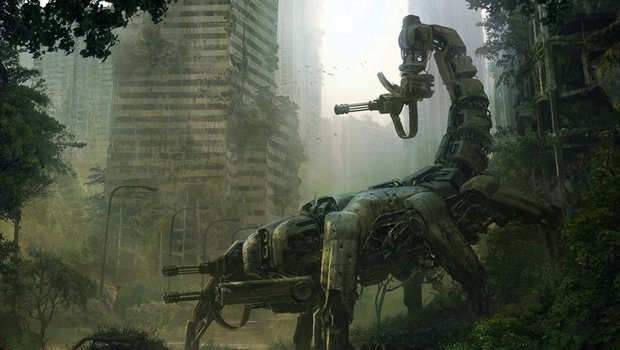"Player choice is everything" - Q&A with Fallout creator Brian Fargo
We talk Kickstarter, Wasteland 2, and industry change
Fallout, Wasteland, The Bard’s Tale – these are some of the games created by Brian Fargo. It’s fair to say that he’s been around the games industry for a while, and he was the founder of legendary studio Interplay back in 1983, which worked with development studios like Blizzard, BioWare and Shiny Entertainment. Now, a founder of inXile Entertainment, Brian has turned his attention to two new RPGs, Torment: Tides of Numenera; and Wasteland 2; (a sequel to the game that inspired the original Fallout).
We recently caught up with Brian to talk about Wasteland and Torment – both of which have been crowd-funded using Kickstarter. In fact, Torment reached its $1 million Kickstarter goal faster than any game in history, proving that there's strong demand for the kind of RPGs Fargo is making. So why didn't inXile go through the traditional developer / publisher approach for the games? Why reach out to Kickstarter?

"Well, I think the very simple truth is that there was no way these games were going to get made otherwise," says Fargo. "My background is in role-playing games – they’re what I’ve always loved – Bard’s Tale, Wasteland, Fallout etc. And, although I never stopped trying to make them, whenever I spoke to publishers, I’d usually be told things like “We already have one of those” as if RPGs were some kind of fixed commodity and you could only ever have one in your portfolio. Big publishers look at things in that way; they say 'We have our sports game, our RPG, our first-person shooter etc'. With Wasteland specifically, I got the mark back in 2002, and I started putting the team together – I got one of the co-creators of the original Wasteland back, and one of the co-creators of Fallout – and I went out and pitched to publishers to see if I could get interest going, and we just got nowhere. We didn’t even get to the part of the meeting where they said 'Huh – sounds interesting. How much do you want?'."
There's little doubt that crowd-funding creates a level playing field for developers. If their game isn't interesting enough, people simply won't back it. Perhaps this democratisation of the process is why Fargo is so keen on it. "To me, there’s no question that we’re just at the beginning of it all," he says. "I read the other day that there are over 300 different crowd-funding sites, with Kickstarter certainly being the biggest, and if you add them all up they did around $2.5 billion worth of sales last year. Take inXile for example – let’s assume we do a great job with Wasteland 2, and everybody loves it – I can’t imagine that we’d have any difficulty funding something via Kickstarter again, if we deliver on what we’ve promised to do."

Delivering on promises is important to Fargo. With crowd-funding schemes like Kickstarter, players fund projects based on what they expect them to deliver. Deviate from that, and you risk angering the people who are bankrolling you. But what happens when you get into a Mass Effect 3 situation, where players expectations aren't met because the team wants to deliver choice - a vital component of RPGs. "Part of the problem there, as I understand it, is that they promoted the fact that your decisions could effect the ending," he says.
"So, you’re if you’re making a strong claim like that then you have to follow through with it. The general feeling is that they didn’t follow through with it other than you being able to choose a few different colours. I think that if you’ve committed to a principle then you need to deliver on that. However, if you as an author decided that you wanted to have an ending that goes one way or the other then that’s your prerogative. It all comes down to how you’ve communicated about what you’re going to do. So if I say that I’m going to do multiplayer, and it isn’t in the final game, then I don’t get to just say “Hey, I’m an artist. I don’t believe in multiplayer” because people might have bought your game on the understanding that there would be multiplayer."
He continues: "I can’t speak for why BioWare had issues. I think that perhaps companies like BioWare have a very different approach to making their games. They do a lot of audio and cinematics, and these tend to hem you in when it comes to changing things, especially towards the end of development. Some of my best work happens in those last 90 or so days, when we’re watching real human beings play our game and therefore getting a lot of input about what they’re doing and how we need to adjust. If you’re locked in with millions of dollars worth of audio and cinematics it makes change very difficult."
Weekly digests, tales from the communities you love, and more



